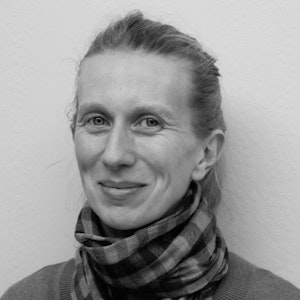
Zoë Quick
Visiting Lecturer
Zoë’s architectural practice, research and teaching move between architecture, art, poetry and performance, with a focus on enacting resilient relationships between archives, communities and ecologies. She brings to CAT rich experience in leading multi-disciplinary teams in delivering narrative design projects for cultural institutions and landscapes.
Since qualifying as a registered architect in 2004, Zoë has pursued passions for narrative-led design. While based in London, she was a senior architect at Metaphor, where she led multi-disciplinary teams working on design projects for a range of cultural institutions, from sound and film installations in historic buildings to narrative installations in historic landscapes. Since relocating to mid-Wales, Zoë has sought to align her practice with long-held sustainable values and the needs of local communities and rural landscapes. Her work emphasises collaboration with clients, community groups and other professionals, and ranges from small-scale acts of careful maintenance to sustainable retrofit and conversion projects and designing and making educational and community performances. She is also co-founder of Both Coed, a community enterprise that promotes the use of a community woodland through environmental performance-events.
Zoë has previously taught architecture at Cardiff University, The University of Nottingham, Kingston University, University College London and The Architectural Association, and interior design at Birmingham City University.
Zoë’s current practice-led PhD research, at University College London, looks to unravel the political ecology of the Welsh custom gwlana (wool-gathering) within fields of current debate over the Welsh uplands.
Qualifications
Registered Architect: ARB registration number 069711G
Graduate Diploma in Architecture, University College London
Teaching Activities
MArch visiting lecturer, seminar tutor and dissertation supervisor.
Co-module leader for Architectural Analysis in Writing 1.
Research Interests
Environmental Justice.
Political Ecology.
Landscape and Identity.
Performance and Performativity.
Architecture, Agriculture and the Rural.
Traditional/Local Environmental Knowledge.
Radical Pedagogies.
